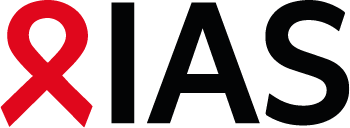Share Abstract
“When do I stop this?”: challenges to accepting lifelong treatment among pregnant women in Kinshasa, DRC, and counseling strategies to address them
Abstract Content:
Background: Implementation of universal lifelong antiretroviral treatment (“Option B+”) for HIV-infected pregnant and breastfeeding women began in the Democratic Republic of the Congo (DRC) in September 2013. Other country experience suggests pregnant women initiated on treatment the day they are diagnosed HIV-positive are at elevated risk of defaulting from antenatal care. One study objective was to document factors contributing to loss to follow-up among HIV-positive pregnant women and suggested additional strategies to address retention.
Methods: In July-August 2015, 29 healthcare providers participated in interviews; 25 mentor mothers (HIV-positive expert patients) participated in four focus groups. Sixteen EGPAF DRC-supported facilities in Kinshasa with high volume and high HIV prevalence were purposively selected. Topics included women''s Option B+ perceptions and experiences and counseling strategies to encourage lifelong treatment acceptance. Audio recordings from sessions were transcribed and translated from French or Lingala into English. Data were prepared for analysis using a standardized codebook and analyzed using MAXqda (V10).
Results: Study respondents described pregnant women''s difficulty with accepting lifelong antiretroviral therapy (ART). Women often expressed shock or felt punished and struggled to comprehend, with questions such as “When do I stop this?” With intensive and ongoing counseling and the establishment of trusting relationships with clinic staff, most women accepted and adhered to medication. However, nearly all facilities had cases of women who refused treatment. Frequently reported reasons included conflicting guidance from pastors to pray instead of taking medication and fear of stigmatization, particularly from male partners. Table 1 depicts strategies employed by providers and mentor mothers to encourage treatment acceptance and reasons women provided respondents for refusing lifelong treatment. Responses were similar across participant groups, though providers reported drug functionality and mentor mothers reported testimonials slightly more often as strategies.
[Table 1: Frequently Reported Option B+ Counseling Strategies and Reasons for Refusing Lifelong Treatment]
Conclusions: Treatment acceptance is a significant challenge for Option B+ scale-up. Lessons learned through this evaluation to encourage treatment acceptance and promote retention could be incorporated, such as sensitization workshops for religious leaders, couples counseling strategies, and HIV-related training for mentor mothers to comprehensively address women''s needs.
Methods: In July-August 2015, 29 healthcare providers participated in interviews; 25 mentor mothers (HIV-positive expert patients) participated in four focus groups. Sixteen EGPAF DRC-supported facilities in Kinshasa with high volume and high HIV prevalence were purposively selected. Topics included women''s Option B+ perceptions and experiences and counseling strategies to encourage lifelong treatment acceptance. Audio recordings from sessions were transcribed and translated from French or Lingala into English. Data were prepared for analysis using a standardized codebook and analyzed using MAXqda (V10).
Results: Study respondents described pregnant women''s difficulty with accepting lifelong antiretroviral therapy (ART). Women often expressed shock or felt punished and struggled to comprehend, with questions such as “When do I stop this?” With intensive and ongoing counseling and the establishment of trusting relationships with clinic staff, most women accepted and adhered to medication. However, nearly all facilities had cases of women who refused treatment. Frequently reported reasons included conflicting guidance from pastors to pray instead of taking medication and fear of stigmatization, particularly from male partners. Table 1 depicts strategies employed by providers and mentor mothers to encourage treatment acceptance and reasons women provided respondents for refusing lifelong treatment. Responses were similar across participant groups, though providers reported drug functionality and mentor mothers reported testimonials slightly more often as strategies.
| Option B+ Counseling Strategies Used to Encourage Treatment Acceptance: |
| ? Delivering counseling messages with kindness and sensitivity to cultivate a trusting relationship between provider/mentor mother and clients ? Providing messages that include the importance of taking ART and how drugs function in the body ? Including testimonials from mentor mothers on how they remain healthy and have prevented infection in their children ? Likening HIV to a chronic disease like diabetes that requires management ? Referring to a possible future cure for HIV |
| Reported Reasons for Refusing Lifelong Treatment: |
| ? Relying upon religious convictions or guidance from pastors to pray instead of taking medication ? Not disclosing HIV status to partner or family members out of fear of stigmatization ? Believing in witchcraft or demonic origins of illness ? Experiencing side effects, for those who may have initially accepted ? Looking and feeling healthy ? Not believing test results, possibly due to having a serodiscordant partner |
Conclusions: Treatment acceptance is a significant challenge for Option B+ scale-up. Lessons learned through this evaluation to encourage treatment acceptance and promote retention could be incorporated, such as sensitization workshops for religious leaders, couples counseling strategies, and HIV-related training for mentor mothers to comprehensively address women''s needs.
